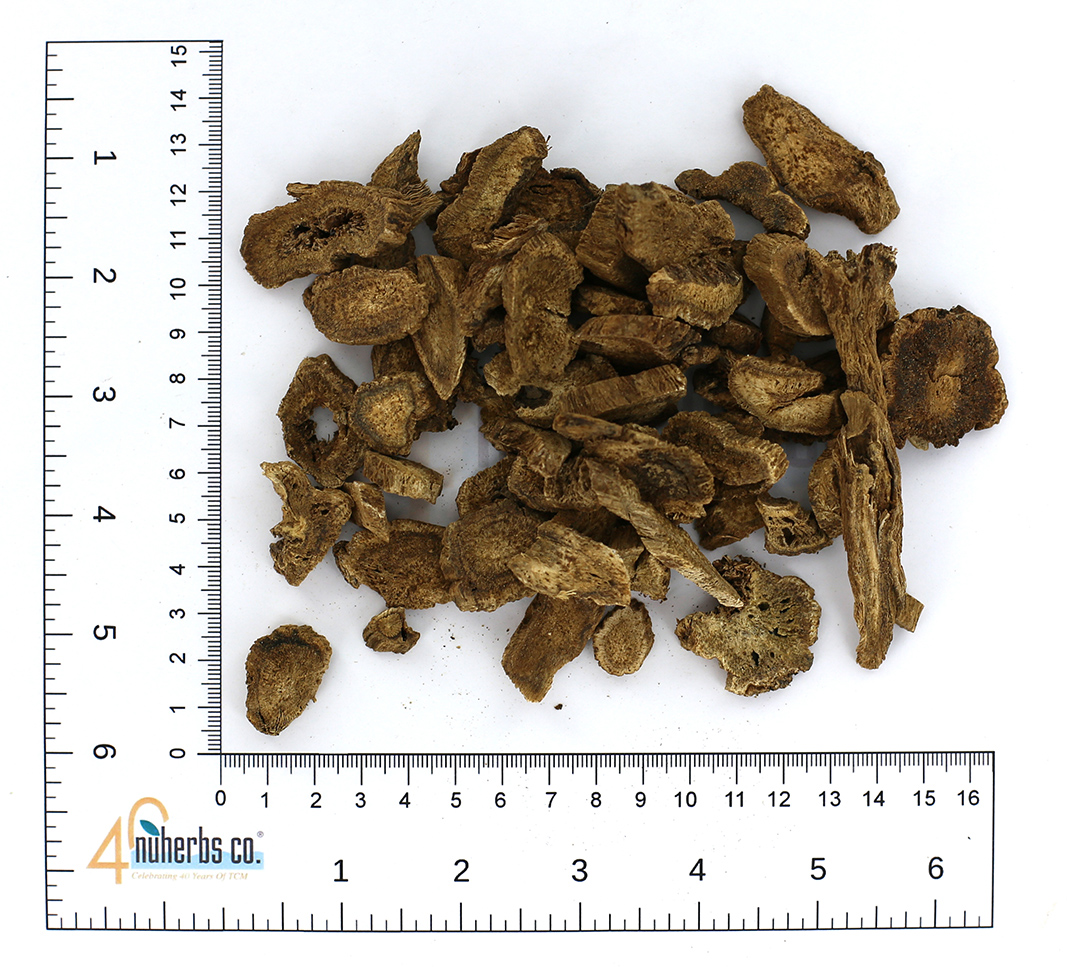Single Herb Glossary
Mù Xiāng 木香

| Pharmaceutical name | Aucklandiae Radix aucklandia, saussurea, costus root "wood fragrance" |
| Category | Regulate Qi |
| Key Properties | Promotes flow of Qi, Stops pain Strengthens spleen, Eliminates food stagnation |
| Properties | Acrid Bitter Warm |
| Tropism | GB, LI, SP, ST, SJ |
| Actions & Indications | 1) Promotes Movement of Qi & Stop pain (Middle Jiao, LV/GB) 2) Adjusts & Regulates Stagnant Qi in Intestine (tenesmus) 3) Strengthens SP & Prevents Stagnation (harm other herbs) |
| Dosages | 3-9g |
| Contraindications (TCM) | CI: Caution in patients with depleted fluids, yin def, or blazing fire |
| Contraindications (Western) | |
| Chemical Composition | Saussurine, costus lactone, dihydrocostus lactone, dehydrocostus lactone, costunolide, dihydrocostunolide, 12-methoxydihydro-costunolide, α-costol, α-costic acid, saussurea lactone, α-costene, β-costene |
| Pharmacological Effects | • Respiratory: demonstrated ability to relax spasms of trachea and bronchi • Effects on smooth muscles: components of this herb have various effects on smooth muscle of intestines: some stimulate intestines and increase peristalsis, some relax intestinal spasms, and some have an inhibitory action • Cardiovascular: laboratory studies of frogs, dogs and rats have demonstrated different effects on cardiovascular system depending on dosage; with small dosage, there is a stimulating effect on heart, and dilation of blood vessels; with large dosage, there is an inhibiting effect on heart, and constriction of blood vessels • Antibiotic: essential oil has inhibitory effect on streptococcus, staphylococcus, E. coli, and Corynebacterium diphtheria |
| Herb-Drug Interactions | |
| Classical Formula(s) |
This information is a reference tool for Chinese herbal studies. It is not intended to replace professional medical advice. Please consult a primary health professional if you require health advisory.
